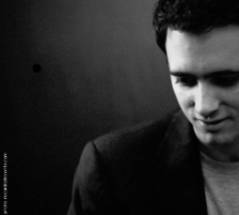Paolo Alderighi, a Pianist with Management Skills
In a certain sense, Paolo Alderighi, the 28-year-old jazz pianist who is considered one of Italy's most important emerging musicians at an international level, defying geometry. Throughout his life, the two parallel lines that represent his passions for music and the study of management have intersected several times. Today, in addition to having performed all different kinds of music with the best musicians all over the world, Paolo teaches History of Show, with a focus on music, in the Bachelor of Economics and Management in Arts, Culture and Communication at Bocconi.
 |
| Paolo Alderighi |
"I think that one of the tasks of a musician is to circulate his or her language," explains Alderighi. "The course I teach at Bocconi aims to give students those theoretical elements that music is based on, to be able to catch the nuances. It's a little like a wine-tasting course, which teaches students how to recognize the various flavors that make up a wine." Paolo Alderighi's double tracks started after his degree in classical piano at the Conservatory of Milan, at age 19. He enrolled in Bocconi and graduated in 2005 with a degree in the program he teaches for today, with a final paper on the jazz music recording industry in Italy. This is, in fact, the genre that he feels is his kind of music. "I love classical music, which I've studied it the longest," he says. "Maybe because when I was younger my family listened to jazz, this is the genre that seems most familiar to me." Even if saying that Paolo just plays jazz "doesn't mean that much," as he says himself. "Music is a gigantic universe and categories always end up being too restrictive. It's the approach you have with music that makes a difference." His imprinting is from swing and the classical period, along with bebop, all styles that he likes to revisit. "I try to do a mix with what I've learned classically, but, most of all, I try to find my dimension in the traditional repertoire. Jazz's most important feature is that you can take any melody and arrange it based on your characteristics or the way you are." It's a process of elaboration that Paolo brings to the stage, but "the interesting thing is" when he teaches he can communicate not only through music. "When you're at the piano you can't explain what you're doing, while when you're in a professor's chair you leave the emotional aspect aside and you can talk about everything that's behind what you play." Despite his young age, retracing the many steps that have made up his musical career is not an easy task. He was named best young talent in Holland at the Breda Jazz Festival in 2004, followed by 5 trips to Japan. He received special mention in the Jazz section at the National Awards for the Arts in 2007, announced by the Italian Ministry of Universities. He has performed in various groups and as a soloist in several European countries as well as other parts of the world, including Australia. He recorded part of the soundtrack for Ermanno Olmi's documentary about artist Jannis Kounellis. He placed second in the Top Jazz 2007 referendum of the magazine Musica Jazz, in the best new talent category, and he placed first in the Italian Jazz Awards 2008 in the brand new jazz act category. In addition, he recently recorded A Touch of Swing, his third album. Looking at his many accomplishments makes you realize that musicians in Italy who play a certain genre of music often lack the visibility they deserve, outside a small circle of connoisseurs. "Music appreciation in our country leaves a lot to be improved. Music is almost always viewed as entertainment more than culture. Just look at the success of TV music programs." Canzonettas certainly do not require training to understand and appreciate them, but "it bothers me that so much is invested in singers on the X-Factor and so little is invested in distributing and listening to classical and jazz music," or that "a string quartet accompanying singers like Morandi. made up of only professionals is only paid about €50 per person. It would be nice to see a little more respect for those people who give their lives to this kind of music." Paolo Alderighi is therefore fighting his own personal battle in favor of music appreciation both on stage in Bocconi classrooms. When he takes off his professor's robe, Bocconi is also where he performs as a pianist with other colleagues in the sextet Bocconi Jazz Business Unit. The two parallel lines of Paolo's life continue to intersect and they continue defy geometry.